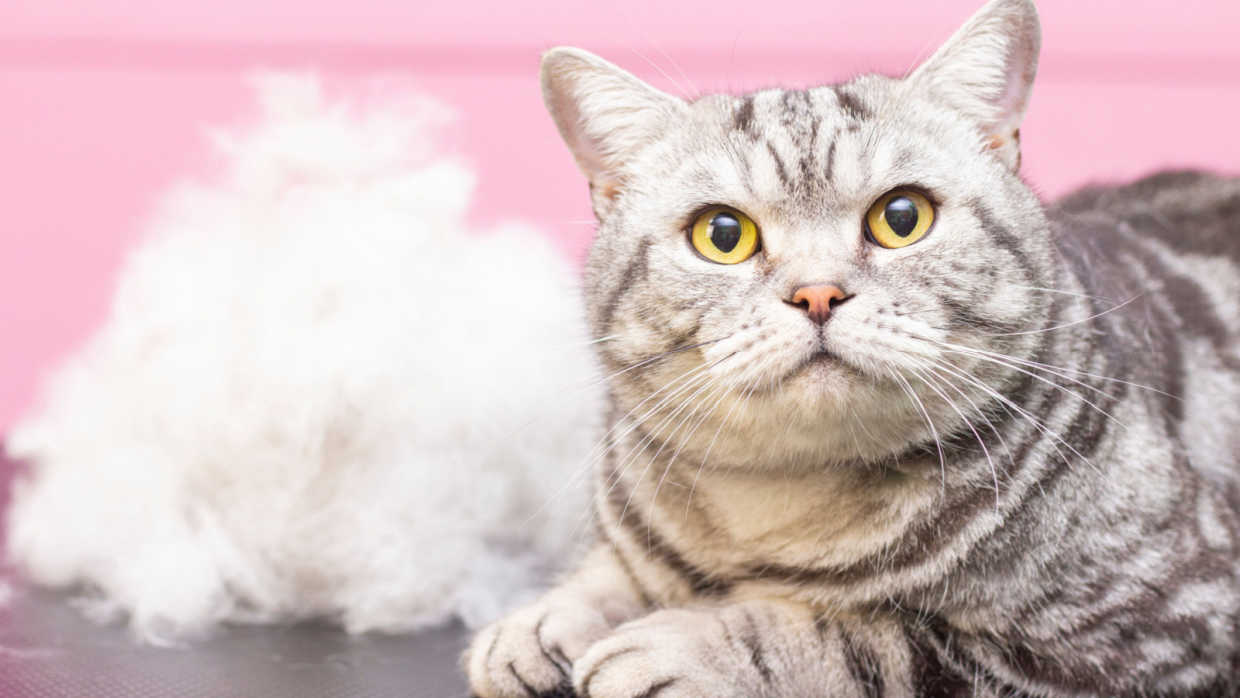Shedding is a natural process for cats, but excessive shedding can often concern pet owners. While a certain amount of hair loss is normal, significant shedding can sometimes indicate health issues or nutritional deficiencies. Understanding the role of diet in promoting healthy skin and coat can help mitigate excessive shedding.
Understanding Cat Shedding
- Normal vs. Excessive Shedding: Normal shedding is a natural process of hair renewal. However, excessive shedding can be caused by poor nutrition, stress, or health issues.
- Factors Influencing Shedding: Factors like breed, age, indoor vs. outdoor lifestyle, and underlying health conditions can influence a cat’s shedding. Seasonal changes also affect the shedding cycle.
Nutritional Needs for Healthy Skin and Coat
- Essential Fatty Acids: Omega-3 and Omega-6 fatty acids are crucial for maintaining healthy skin and reducing excessive shedding. They help strengthen the hair follicle, leading to a healthier coat.
- High-Quality Proteins: Proteins are the building blocks of hair. High-quality sources like chicken, fish, or lamb promote a stronger, healthier coat.
- Vitamins and Minerals: Vitamins E and B, along with minerals like zinc, support skin health and can improve coat quality. They aid in the repair and growth of skin and fur.
Top Cat Food Brands for Reducing Shedding
- Royal Canin Hair & Skin Care: Specially formulated for cats with sensitive skin and coat issues.
- Pros: Balanced omega-3 and omega-6 levels, supports healthy skin and coat.
- Cons: Higher price point.
- Price: Around $30 for a 7-lb bag.
- Availability: Pet stores and online.
- Hill’s Science Diet Adult Skin & Coat: Designed to promote a lustrous coat and healthy skin.
- Pros: Contains omega-6 fatty acids and vitamin E.
- Cons: Includes grains, which might not suit all cats.
- Price: Approximately $40 for a 15.5-lb bag.
- Availability: Widely available in pet stores and online.
- Purina Pro Plan Focus Sensitive Skin & Stomach: A formula for cats with sensitive skin and digestive systems.
- Pros: Made with easily digestible ingredients and real lamb.
- Cons: Contains corn gluten meal.
- Price: About $36 for a 16-lb bag.
- Availability: Pet stores and online.
- Blue Buffalo Wilderness High Protein Dry Cat Food: High in protein and grain-free.
- Pros: Features real chicken, rich in antioxidants.
- Cons: It may not be suitable for cats with specific protein sensitivities.
- Price: Around $36 for a 12-lb bag.
- Availability: Pet stores and online.
- Orijen Cat & Kitten Dry Food: Biologically appropriate food with a variety of fresh meats.
- Pros: High protein content, including a blend of fresh, freeze-dried meats.
- Cons: Premium price.
- Price: Approximately $65 for a 12-lb bag.
- Availability: Specialty pet stores and online.
Feeding Strategies for Cats Prone to Shedding
- Balanced Diet and Portion Control: Ensure that your cat’s diet is balanced and feed them appropriate portions to maintain overall health, impacting coat condition.
- Hydration and Wet Food: Wet food can help increase water intake, promoting healthier skin and reducing shedding. Ensure fresh water is available at all times.
Additional Care and Considerations
- Regular Grooming: Regular brushing helps remove loose hairs and stimulates skin circulation, reducing the amount of hair shed.
- Addressing Underlying Health Issues: Always consult a veterinarian to rule out or treat health conditions that may cause excessive shedding.
FAQs About Cat Food for Shedding
- How quickly will I see a reduction in shedding after changing my cat’s diet? It may take several weeks to notice a change, as dietary improvements take time to affect skin and coat health.
- Are grain-free diets better for reducing shedding? While grain-free diets benefit some cats, particularly those with grain sensitivities, the overall nutritional balance is more important for coat health.
- Can supplements help with shedding? Supplements like fish oil can be beneficial but consult with a veterinarian before adding any to your cat’s diet.
- What if my cat is a picky eater? Try gradually mixing the new food with the old, or consider adding a bit of wet food to entice them.
- Is excessive shedding always a sign of poor diet? Not necessarily. It can be due to various reasons, including stress, health issues, or genetics. Consult a vet if you’re concerned.
Conclusion
Selecting the right cat food is crucial in managing shedding. A diet rich in essential fatty acids, high-quality proteins, and vital nutrients can significantly improve skin health and reduce excessive shedding. Along with proper nutrition, regular grooming and veterinary care play important roles in maintaining your cat’s coat health.

Jane Doe, a veterinarian with over 10 years of experience, combines her deep knowledge of animal health with a passion for pet welfare at PetsPonder.com. With a DVM degree and a commitment to the latest in veterinary science, Jane Doe offers reliable, compassionate advice to help pet owners make informed decisions for their furry companions.

Leave a Reply